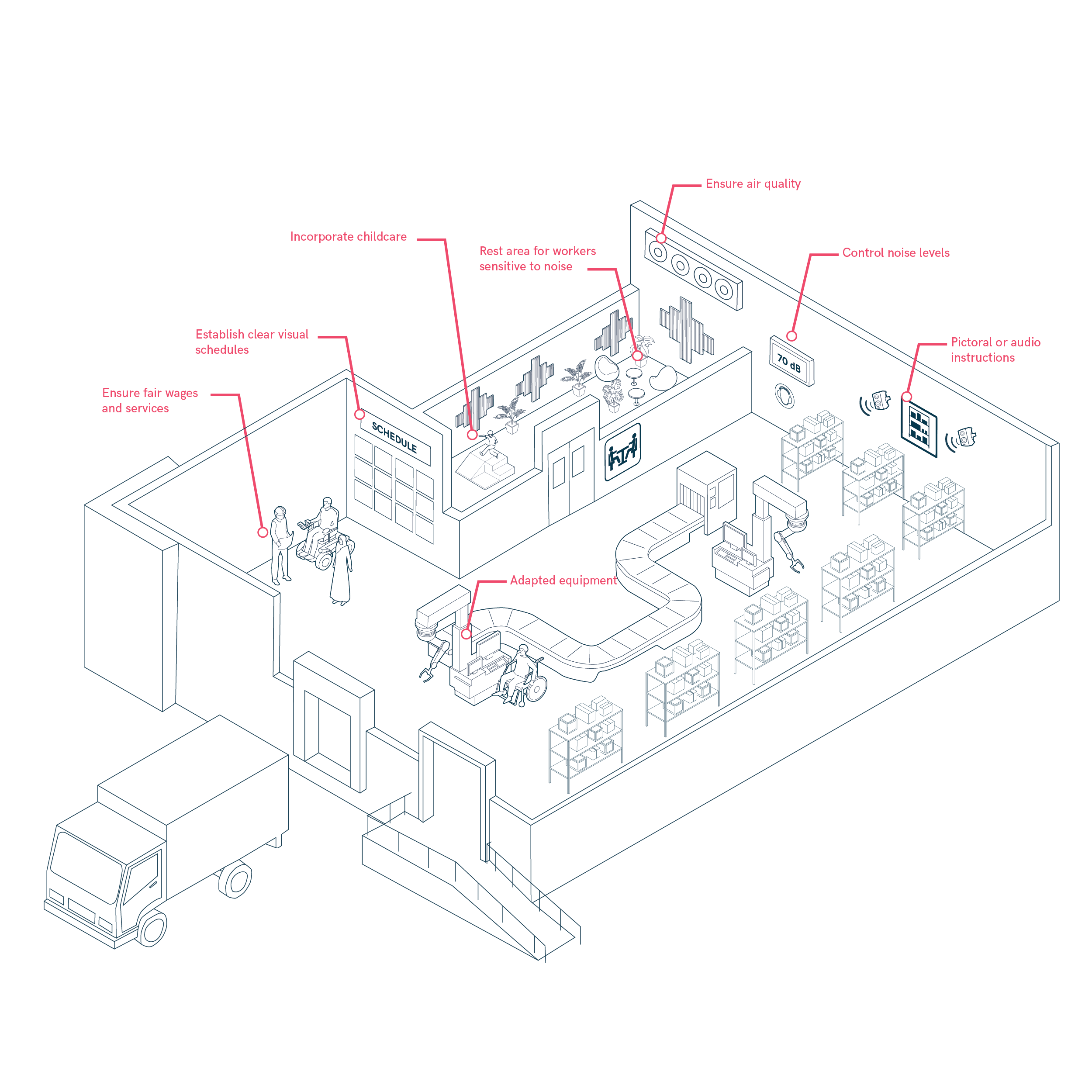Industrial spaces
To create inclusive industrial areas, it is crucial to design spaces that consider the diversity of workers’ skills and needs. This involves adapting equipment and workstations, managing the sensory environment and promoting equity in career development. In addition, there must be a culturally sensitive and affordable approach to ensure a fair and accessible environment for all.

- Ensure that equipment is adapted to a range of physical abilities.
- Control noise levels and provide hearing protection where necessary.
- Create rest areas for workers sensitive to noise or sensory overload. Integrate natural spaces where workers can relax and reconnect with nature. Ensure air quality.
- Provide visual, pictorial or audio instructions for workers with cognitive disabilities.
- Establish clear visual schedules and workflows to reduce confusion.
- Ensure growth opportunities for workers from marginalised groups, such as migrants, women and people with low income or education.
- Involve local communities and marginalised groups in the design and planning process.
- Ensure fair wages and services to reduce economic disparities.
- Provide cultural and linguistic support services and ensure access to information on workers’ rights.
- Incorporate childcare close to or integrated into workplaces to promote work-life balance.
